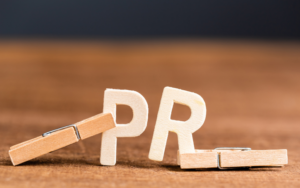In today’s interconnected digital world, a company’s reputation can be its most valuable asset. However, even the most well-managed organizations can find themselves facing crises that threaten their standing. When a crisis strikes, effective reputation recovery strategies are vital to not only weather the storm but emerge stronger on the other side.
Importance of reputation recovery
Reputation recovery is the process of rebuilding and restoring a company’s image, trust, and credibility after a crisis or damaging event. The importance of reputation recovery can’t be overstated for several reasons. Trust is the foundation of any successful business. A damaged reputation erodes trust, and without trust, a company may struggle to retain customers, partners, and investors. A tarnished reputation can lead to financial losses through reduced sales, stock price decline, and increased operational costs to address the crisis. Some crises may lead to legal actions and regulatory penalties, making reputation recovery essential for mitigating these risks. A damaged reputation can negatively impact employee morale and recruitment efforts, potentially leading to talent drain. In highly competitive markets, a strong reputation can be a key differentiator. Reputation recovery is vital for regaining a competitive edge.
Assessing the damage
To assess the situation, start by understanding the extent of reputation damage. Identify key stakeholder concerns and determine the underlying causes of the crisis.
Developing a reputation recovery plan
Based on the assessment, create a comprehensive reputation recovery plan. Define clear objectives, strategies, and tactics for addressing the crisis and rebuilding trust. Ensure that the plan aligns with the company’s values and long-term goals.
Open and honest communication
Transparency is paramount in reputation recovery. Communicate openly and honestly with all stakeholders. Acknowledge the issue, take responsibility, and provide a clear path forward. This may involve public apologies, press releases, or direct communication with affected parties.
Employee engagement
Engage with the employees and keep them informed about the situation. A well-informed and motivated workforce can play a crucial role in reputation recovery.
Rebuilding trust through actions
Actions speak louder than words. Implement the strategies outlined in the recovery plan and demonstrate the company’s commitment to positive change. This may include changes in policies, procedures, or leadership.
Monitoring and adjusting
Continuously monitor the progress of the reputation recovery efforts. Solicit feedback from stakeholders and make necessary adjustments to the plan while implementing that plan. Flexibility and adaptability are key.
Learning and improving
A crisis can provide valuable lessons. Use the experience to improve crisis management procedures and strengthen the company’s resilience against future crises.
Tylenol example
In 1982, seven individuals in the Chicago area lost their lives after consuming Tylenol capsules that were contaminated with cyanide. Johnson & Johnson, Tylenol’s parent company, acted swiftly by recalling 31 million bottles of the product, issuing a nationwide warning, and offering exchanges for safe products. Their commitment to consumer safety and transparent communication during the crisis not only saved lives but also rebuilt trust in the brand.
Airbnb example
After reports of discrimination on its platform, Airbnb faced a reputation crisis. The company responded by launching a comprehensive anti-discrimination policy, implementing mandatory unconscious bias training for hosts, and creating a team to address discrimination complaints. Airbnb’s commitment to combating discrimination contributed to reputation recovery.




